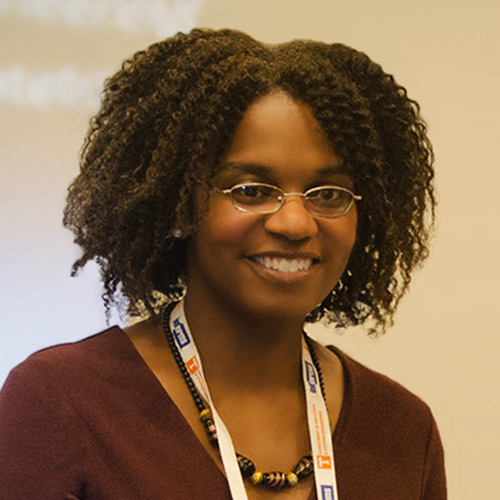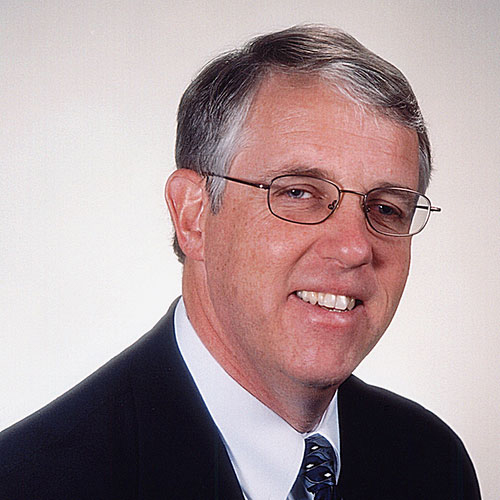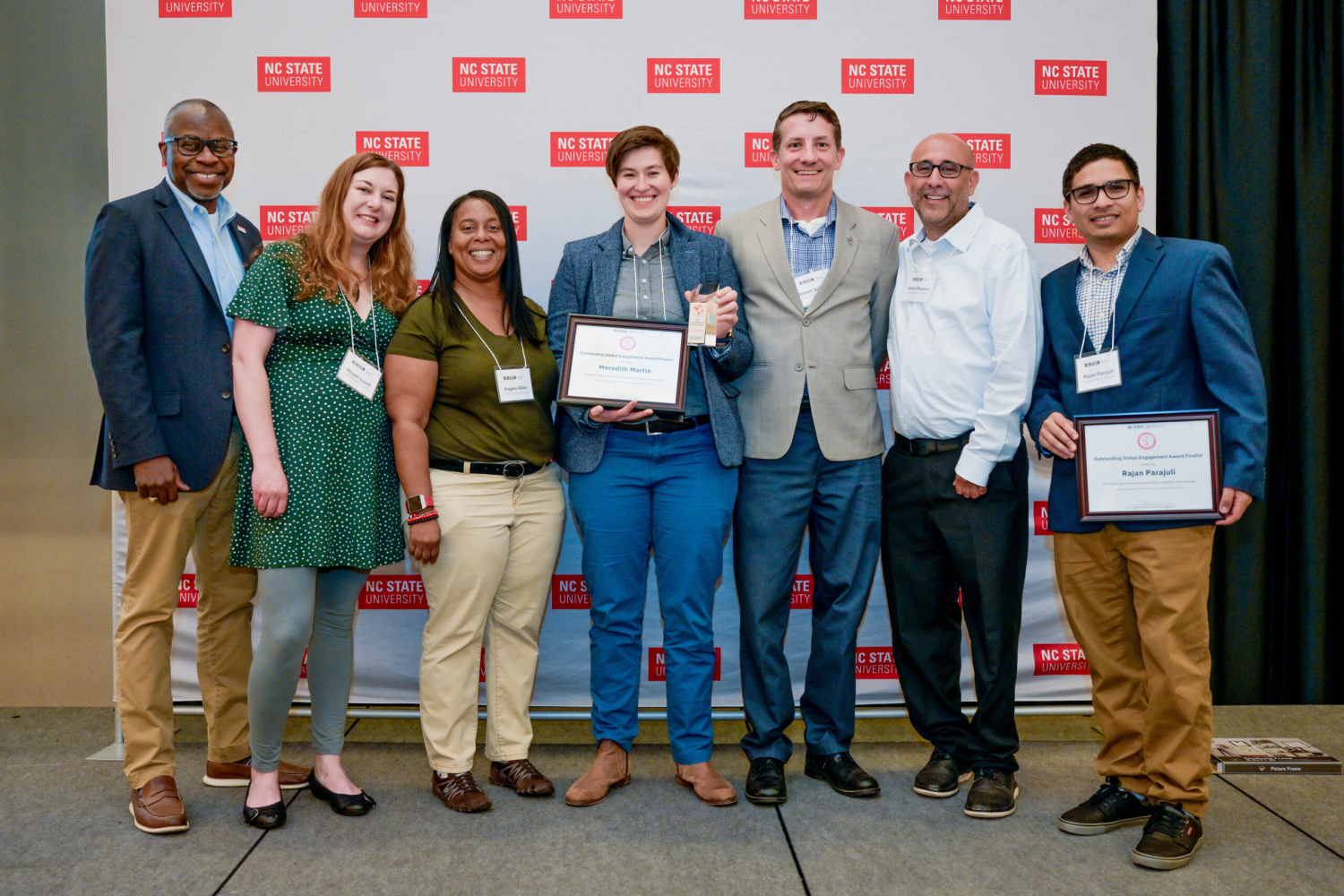Three faculty members in the College of Engineering at NC State were honored with 2023 Blessis Outstanding Undergraduate Advisor Awards for their outstanding commitment to ensuring students are academically and personally supported.
Rachana Gupta is a teaching professor in the Department of Electrical and Computer Engineering; Julie Ivy is a professor in the Fitts Department of Industrial and Systems Engineering; and Robert Kelly is an Alcoa Professor in the Department of Chemical and Biomolecular Engineering.
The award recognizes the efforts of faculty members who give their time and effort to advising, counseling and mentoring individual students and student groups, while commemorating the memory of George H. Blessis, a faculty member whose interest in undergraduate education and advising serves as an example today.
Awardees are selected by the COE Teaching and Advising Awards Committee from nominations provided by College’s departments. They are each awarded $1,000, a certificate and a permanent plaque with the recipient’s name displayed by the College.
Rachana Gupta
When Rachana Gupta accepted a temporary position as a lecturer at her alma mater in India, she didn’t see herself teaching far into the future. Now 20 years later, she is a teaching professor and director of the Department of Electrical and Computer Engineering’s senior design program. She can’t see herself doing anything else.

“The most rewarding part of it all has been conversations and discussions with students, the sharing of experiences and talks about the future, whether they want to join the industry, start a company, go for graduate studies or completely change career paths,” Gupta said.
Gupta believes diverse experiences are crucial to education and has built the senior curriculum around this belief. She’s added a network of guest lecturers and mentors with expertise in all sorts of fields.
“After 20 years of advising and mentoring, it still brings me profound joy to see students grow in their knowledge, confidence and communication through their years in college and go on to be successful in whatever they choose to do,” she said. “And knowing that I helped somewhere along the way is the real award.”
As the ECE department head, Dan Stancil noted that Gupta has served as an advisor and senior design mentor to engineering undergraduate students for 10 years. He referred to her performance as “exemplary.”
“She has been hugely successful in bolstering the senior year experience for undergraduate students and in helping them develop facets of their career beyond the traditional engineering curriculum,” he said.
Some of Gupta’s students remember her from long before they arrived at NC State. Alum Katie Millhouse met Gupta her junior year of high school, when Gupta helped run a summer camp for high schoolers interested in engineering.
“She was passionate about teaching and helping others discover if electrical engineering was a path they would like to pursue,” Millhouse said. “I was inspired by her teaching and the program enough to not only apply to NC State’s electrical engineering program, but to apply with a recommendation from Dr. Gupta. I am delighted and honored to return the favor.”
Julie Ivy
Advising 15 to 20 students per year should be enough for most, but not for Julie Ivy, professor and Fitts Faculty Fellow in Health Systems Engineering. She’s also Health Systems Engineering Certificate program director, the faculty advisor for Alpha Pi Mu (the ISE Honor Society) and the program director of the NC State chapter of the Society for Health Systems and the Master of Engineering Management.

“My vision is to create an engineering community that is accessible, welcoming and enables success for all of its members,” said Ivy. “Advisors play a critical role in creating community and a sense of belonging for students.”
In her 15 years at NC State, Ivy has taught a number of courses, including Healthcare Systems Performance Improvement I, Healthcare Systems Performance Improvement II and Stochastic Models in Industrial Engineering. She has also developed a number of classroom and independent study projects with the NC State Student Health Center, the UNC Cancer Center, the Cherokee Health Department and more.
“It has always been important to me to bring my research into the classroom to expose students to non-traditional applications of industrial and systems engineering,” she said.
“Dr. Julie Ivy is an outstanding mentor to students,” added Rohan Shirwaiker, ISE professor and co-chair of the ISE awards committee. “She is a passionate advocate of students and has actively guided students from diverse backgrounds at all levels in research and academics. She has been instrumental in encouraging undergraduate students to pursue graduate school.
“Moreover, several of her former Ph.D. advisees, including women and those from underrepresented communities, have gone on to become faculty themselves. Beyond research, Dr. Ivy helped develop and has subsequently led the ISE Healthcare Systems Certificate program, which is very popular among our undergraduate students.”
Many of her students cite Ivy as one of their most memorable professors, even years after graduating. Sabin Blumenfield, a BSIE alumnus from 2013, remembers how Ivy prioritized her advisees not only in their research, but also in academics and pursuing grad school.
“I once told Dr. Ivy something along the lines of, ‘I listen to your advice half of the time, which is far more than I listen to anyone else,’” Blumenfield said. “Dr. Ivy was the most influential person of my time at NC State. I’ll always appreciate the opportunity of being her undergraduate researcher – before I even took her class – just because I asked.”
Robert Kelly
Professor Robert Kelly has been at NC State for over three decades, and he isn’t done yet.
Kelly’s advisees only have the best things to say, calling him an “amazing advisor,” citing his knowledge in biomolecular engineering and referring to him as a guide far beyond their time at NC State.

“As director of the biotechnology program, it is part of my job to keep up to date on university policies, regulations, resources and services as these apply to undergraduate students,” Kelly said. “When advising chemical engineering students with biotechnology minors, I keep abreast of our departmental curriculum changes.”
Former student Sydney Floryanzia is currently a Ph.D. student in chemical engineering at the University of Washington. Floryanzia noted that Kelly’s advising left a positive impact on so many students.
“Each semester until I graduated, Dr. Kelly demonstrated this same commitment to my continued academic success,” Floryanzia said. “He could have easily written me off, but instead never gave up on me and took an active role to ensure I got back on track to complete my degree. I didn’t need to leave the program. I just needed someone to believe in me and provide personalized assistance to direct me to the resources I needed.”
Likewise, Daniel Haller, a former chemical engineering student at NC State and current Ph.D. student in systems, synthetic and physical biology at Rice University, cited Kelly as having helped navigate a “major shift” in his post-graduate career.
“Over the course of my undergraduate experience, I fell more and more in love with synthetic biology research and began to realize that I was not a good fit for medicine,” said Haller. “My advising conversations with Dr. Kelly helped me to recognize my shifting interests, as he was able to point out changes in how I spoke about my interests and future plans.”
Kelly’s main goal? For students to exceed their own expectations. “Far and away the most important aspect of undergraduate advising is the relationship you develop with the student,” he said. “Every student has a story that I explore with them at our first meeting. I want to know where they are from, how they came to NC State and why they chose their majors and minors.”
- Categories:



